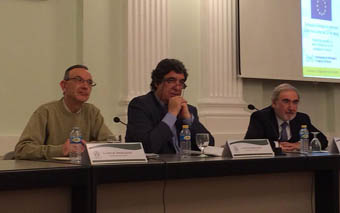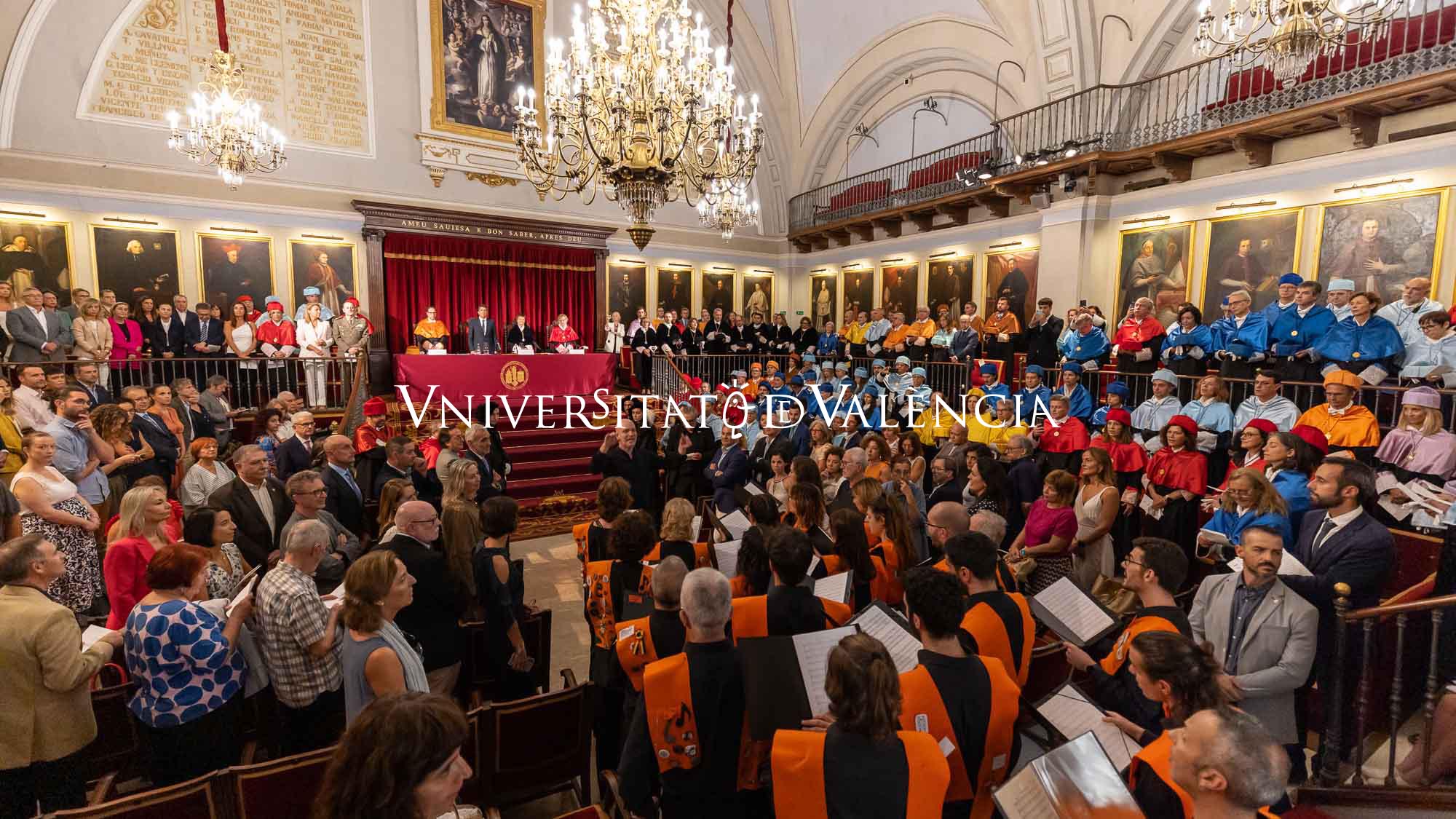
Over the next elections to the European Parliament next 25 May, the Office of the Vice‐Principal for Territorial Projection and Participation has organised a series of conferences which will be celebrated in eight Valencian cities. A dozen teaching staff from different departments of the University of Valencia will reflect on the achievements and challenges of the European Union from different perspectives. The next conference will take place in Sueca this Tuesday, 15 April.
The cycles of conferences will take place, in the course of April and early May, in different Valencian cities. After the meeting in Sueca, the presentations will continue in Gandia on Wednesday, day 16. In May, the conferences will be held in Ontinyent (5 day), Buñol (6 day), Burjassot (7 day) and Eliana (8 day).
The programme of training sessions started in Xativa and Quart de Poblet the last 8 and 9 days of April, respectively. Teachers of the University of Valencia Joan Romero (Geography), Manuel Sanchis (Economic Structure), Carlos Esplugues (Private International Law), José Cardona (International Law), Josep Maria Jordán Galduf (Applied Economics) and Jesús Olavarría (Mercantil Law) analysed the rmajor challenges and perspectives opened for Europe after the elections.
With the elections to the European Parliament being so close, in a moment dominated by the economic crisis, there are many issues which create controversy and concern, so the University aim is, as the Vice-Principal for Territorial Projection and Participation, Jorge Hermosilla, explained, “to provide information, analytical skills and discussion through specialists from the University of Valencia.
On Tuesday 8 April it was opened in Xàtiva the first cycle of conferences on this subject. Jorge Cardona Llorens (Full University Professor of Public International Law) and Josep Maria Jordán Galduf (Full University Professor of Applied Economics) thought about the present, past and future of the European Union.
Professor Jordán Galduf stressed the need to reconcile the citizens with Europe, since as he stated, “the European feeling which proliferated in 1986 has disappeared, largely due to the economic crisis, but we must understand that Europe is not responsible for the crisis we are suffering. The current crisis is our responsibility, caused by an economy based on the construction bubble”.
Jorge Cardona explained that the Spanish society should understand the importance of the European elections and claimed the importance to attend the polls. “I am outraged by the political and social apathy; we are in a social crisis which requires the involvement of the citizens and the political class”, he stated. And he concluded: “The European Parliament is as important as the Council of Europe in the government and in making decisions; so it is essential the citizens’ awareness and engagement.
Then, Professor Jesús Olivarría, of the Department of Commercial Law, moderated a discussion among the speakers and the audience in which issues of European identity proliferated, the ways of getting out of the crisis, the expansion of Europe and immigration.
On Wednesday 9 April it was the turn of Quart de Poblet. Professors Joan Romero and Manuel Sanchis offered two conferences on Europe from different disciplines. Then, there was a discussion, between the speakers and the audience, moderated by Full University Professor of Private International law Carlos Esplugues.
Professor Joan Romero stressed that the European Union is a political ideal and a common goal, based on peace and welfare. As he claimed, “Europe represents today the 7% of the world population, the 25% of the world economy and the 50% of the global social cost”. The Full University Professor of Human Geography concluded: “We must react to the the political, social, economic, moral and leadership crisis”.
Otherwise, Manuel Sanchis, Tenured Professor of Economic Structure of the University of Valencia, claimed that the idea of Europe is opposed to the nationalist movements and ensured that it is necessary “the political union and, in some way, a utopian intentionality which pursues the ideal of a united Europe”. Moreover, he stressed the need to balance the economy and living standards of citizens, to establish a non-state-lead political entity and to support a sovereignty shared between towns and citizens, as well as equal rights among them.
The political representatives of Xàtiva and Quart de Poblet spoke very positively about the conference. Mayor of Quart, Carmen Martínez, praised the University willingness to be in the towns and to contribute to the training of residents in current issues and to empower then critical and socially engaged citizens.
This conference is part of the programme ‘University, Territory and European Union. The crossroads of Europe: lights and shadows for a common future’, which aims to celebrate the cycles of conferences around the European elections on 25 May.
Last update: 14 de april de 2014 08:29.
News release


















